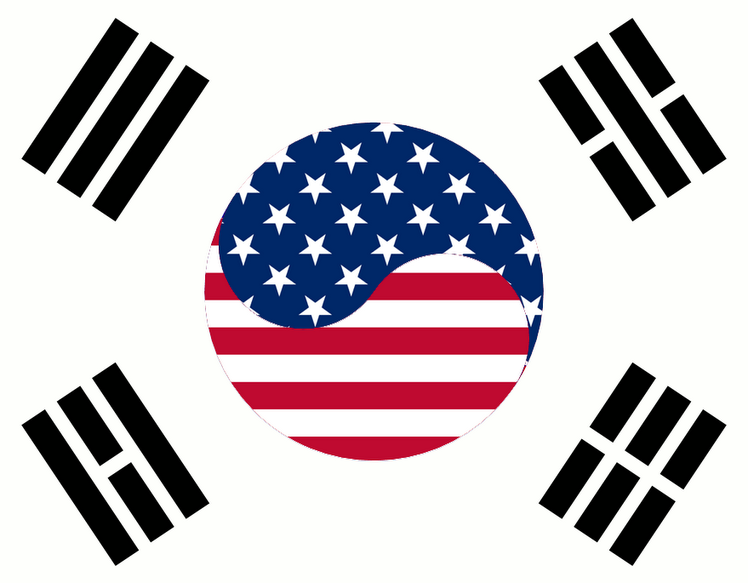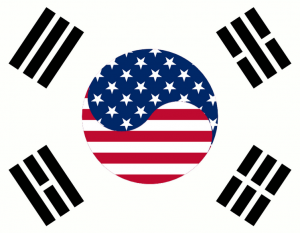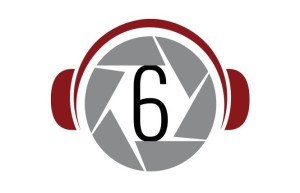My Korean-ness: The Other Half of Me (Part 1)
11 min read
 Someone once said that we are all heroes in our own story. If this is true then we are all on an epic journey in which we are sure to find adversaries. This is a natural part of life and it’s only surprising when our biggest adversaries turn out to be those that should be our greatest advocates. But in life we cannot chose our advocates any more than we can choose our adversaries. They just come to us – like gifts from God. All we can do is choose what we do with those gifts. The problem is that sometimes these relationships come with the kind of baggage that is painful and damaging to our personal growth. And this is really the point, sometimes we are stuck with what we get because we are born into it not because we chose it. Somehow it chooses us. So it’s one thing to say that I come from an Asian background. It’s quite another to say that I come from an abusive Asian background. This might surprise some of you that know me. Some of you it may not. But it’s true. I am Asian. And I spent some of my childhood watching close relatives fist fight one another while intoxicated or enduring verbal abuse at every turn. In any case we all have stories and every story has its beginning. This just happens to be mine. It’s the story of an abused kid that refused to acknowledge that abuse is an excuse to fail.
Someone once said that we are all heroes in our own story. If this is true then we are all on an epic journey in which we are sure to find adversaries. This is a natural part of life and it’s only surprising when our biggest adversaries turn out to be those that should be our greatest advocates. But in life we cannot chose our advocates any more than we can choose our adversaries. They just come to us – like gifts from God. All we can do is choose what we do with those gifts. The problem is that sometimes these relationships come with the kind of baggage that is painful and damaging to our personal growth. And this is really the point, sometimes we are stuck with what we get because we are born into it not because we chose it. Somehow it chooses us. So it’s one thing to say that I come from an Asian background. It’s quite another to say that I come from an abusive Asian background. This might surprise some of you that know me. Some of you it may not. But it’s true. I am Asian. And I spent some of my childhood watching close relatives fist fight one another while intoxicated or enduring verbal abuse at every turn. In any case we all have stories and every story has its beginning. This just happens to be mine. It’s the story of an abused kid that refused to acknowledge that abuse is an excuse to fail.
So if we all share anything in common at all with our fellow humans it’s that we are all born, we all live and one day we will all die. The middle is the stuff of life. It’s convoluted and complicated. But for it to make any sense at all we need to keep digging no matter what we find along the way. If you come from a place of abuse the real beginning doesn’t always begin with you. Sometimes it starts before you were even you at all. Sometimes starts with the generation before you. It starts with our parents or their parents before them, especially if abuse is involved. However, many of us rarely think to start telling our stories with our parents or grandparents in mind. Whether that is due to our need to find our own identity or whether that’s because we just find our parents boring, who knows? This might be because in the beginning our parents rarely show up as heroes and more often than not show up as adversaries in our own stories – especially during our teen years. After all, and in the beginning, if life is about discovery and exploration it’s a parent’s job to be an adversary before an advocate in the sense that that they are there to keep us safe while forgetting that , it is our job to grow into the space that is beyond us. What ensues over the years is a tug of war of wills. But what is remembered by either party are not the intentions, but the struggle to break free of that control placed upon us in our youth. But then again, for most people the hardest part of growing up is learning that the truth in that is really only a matter of perspective, right? This is especially true if our parents were never really our friends. Then again they aren’t supposed to be our friends, but they need not be our enemies either.
If I were to look at the bigger story of who I am more closely there’s something heroic about bringing me into a world with the hopes that I would succeed despite the odds that are already against me long before I arrived onto the scene. And it’s for this respect that I must at least consider that if I am to consider who I am and what I’ve become at all, I must begin at the true beginning of the story and not just at a time that is more convenient for me to tell my story. Please keep this all in mind as I lay the ground work of my story of being a victim and willing participant in an abusive home (and possibly culture). As I tell you my story, you may laugh and that’s okay. You may also cry and that’s okay too. I assure you as I was writing this that I did both too.
You see my story begins not with me screaming as the doctors pulled me out of the birth canal, but begins with an immigrant woman who came to the United States in search of a husband who abandoned her and her daughter. This means that the story begins a few years before me and my exit from said canal. If I chose to dig deeper, I’m sure that it began even long before even my older sister was born too. But I’m fairly certain that my story actually has its genesis somewhere within my mother’s story – the story of a Korean immigrant who despite all the odds came to a country where she didn’t even have a basic understanding of the language and survived (maybe the same way that God took care of Forrest Gump). That’s the way I usually tell her story that begins against the odds and with the best of intentions. I tell her story with a little bit of an understanding that there is such a thing as grace. There is such a thing as people who seemingly get to float over their troubles. I did not inherit this kind of luck. It seems to skip a generation. And this is fine because maybe this is also something that my own children will get to experience for me. I can only hope that if it skips me – that I get to witness goodness protect my family in a sort of cosmic bookend of good fortune.
Whenever I tell people about my mom they often think I am telling a joke about how I grew up the product of a Korean mother and American father(s) – some of whom were father figures and some of whom were actual fathers depending upon how long some of them stuck around. So when there wasn’t a man around there were many times that my mother had to be both my father and mother to me. Maybe it’s for this reason that she was much harder on me had there been a real balance in the home early in my life. My childhood is peppered and laced with my mother screaming at me the way that Asian mothers often do. But when I was a kid, screaming in our home was common and maybe even encouraged. Maybe it was because she always wanted what was best for me, but maybe it was also because she knew what it was like to struggle. But mostly I think it was because she was born to scream. I believe that all Koreans are born to scream. If you are going to marry into an Asian family, I would suggest buying stock in ear plugs. I would also suggest knowing this before joining one willingly or this discovery will be the hardest to overcome.
“Study! Why you no study! In Korea we study so hard, our nose bleed! Why you so lazy?” And it was true, I was lazy when you compared me to that standard of Korean boys who stayed up all night studying, apparently until their noses literally bled out. I tried to do this once, but after finishing my homework and studying for a few hours or so I simply went to sleep wondering why full blooded Korean boys didn’t do the same when they got tired. I concluded that maybe they only bled when their noses hit their desks after collapsing from exhaustion. Regardless, this would be the impossible cultural standard that I could never be able to conquer. But at least this would also be the standard that many of my Asians friends would not be able to live up to either. None of them had had spontaneous nose bleeds caused by too much studying either so I was in good company.
This would be the story of my mother and me from the time I could remember where I would present my gifts wrapped in the form of an accomplishment and she would proceed to crush them in front of me. If I presented a report card with mostly good grades, I was greeted with a, “B in English? You speak English! What’s the matter with you? If I speak English like you speak English, I be a doctor or a lawyer!”
I could only walk away flabbergasted because this fact could never be argued. And as far as I was concerned, this was normal. I would talk about my aspirations and she would tell me why they were essentially bad ideas. This included, but as you can already see was not limited to, my decision to be anything but a doctor or lawyer. In Asian cultures there are only two jobs. However the way that Asian parents express these jobs to their children you almost get the idea that they’re not so much two separate jobs, but one conjunctive job like a “doctor-or-lawyer” or a “doctor-AND-lawyer” – as if they were the holy grail of occupations that cannot exist without the other. And it seemed like no matter what I would do, it was greeted with the disapproval of not wanting to be either.
“Mom, I want to run cross country” I would say.
“Only poor people run!” She would reply. “In Korea, poor people live on top of mountains. They have no money so they have to run to top just to go home. Why you want to be poor?”
“I don’t want to be poor, “I would respond, “but did I mention that I won my last race!”
“It make me tired just listening to you talk about running. Why you no try tennis? Tennis is rich people game.”
“Because the last time I played tennis I got hit across my nose with the racket and got a bloody nose!” I shouted.
“Bloody nose! That why they rich!” She exclaimed.
When I was a kid, at least according to my mother, the destination that would lead to poverty must have begun by running up a hill and ended by doing anything creative or artistic. Artists were always poor. So you can imagine her joy when I told her in college that I was changing my major from business to playwriting. I may as well have told her that I would be trading in my future wealth as a potential doctor-lawyer so that I could drive a garbage truck. That’s the look I got.
“Six years this boy go to college. Is he doctor? No. Lawyer? No. He want to be a writer. In Korea I hear story of how writer starve to death. They want to write so bad they no eat. You going to starve to death if you write.”
“Because I’m going to suddenly forget how to eat?” I would ask. “I was failing my math classes. I needed to change my major!”
“What? Fail math? Disgrace!” She would scream and chase me out of the kitchen with her bamboo backscratcher. And it was true. Who had ever heard of an Asian that wasn’t good at math? My only saving grace was that I was born half white. The half that I would blame for my inability to ace Calculus. The half that I would blame for wanting to write clever short stories that I would allow my friends to read during lunchtime recess when I was in high school. If running cross country would prove to do anything useful for me it would be to know that I could out run that 4′11″ bamboo stick wielding Korean lady that was swinging for the fences behind me. I must preface that violence in Asian cultures, and more specifically in the Korean culture, is acceptable only if your children won’t listen to you…or anyone who was unlucky enough to be born under the established hierarchy of age dominance. What that means is that anyone older than you reigns supreme over you and anyone younger is subject to you. And logic is always trumped by this hierarchy. In a culture in which age rules, you cannot be right if when arguing with an elder (even if you are in fact right nor are you even allowed to have an opinion). It was for this reason that during my early years, while I was under the subjugation of a hierarchy and rules, I did not know how Asian I really was. It was so deeply ingrained in my psyche that I would never be able to separate myself from my Korean-ness without major surgery.
But the part that I don’t like talking about are the painful parts of growing up in an environment or a hierarchy that values some in equal parts that it decides to devalue others. This shouldn’t necessarily lead to violent behavior, just as I’m sure that not all Koreans are violent, I am sure that some of the violence I experienced as a young child were the direct result of this culturally imposed hierarchy that must have gotten twisted. Even though violence was not an uncommon memory of my childhood, in many ways that violence could not be extracted from this cultural need to impose ones sense of importance based upon hierarchy on one another. Likely it was something taught by my grandfather and passed down to his children, I don’t know the exact origin of that violence. But it was evidenced by his children that eventually grew apart – hating one another (or so it would seem to me as a half white observer) and would be one way to look at it. But another way to look at it would be to say that in my home, my grandfather beat my grandmother nearly every day of their married lives because she dared to defy the social order in that home. If my story has a preface, it begins with a man who sometimes beat his wife in front of his six children as she begged and pleaded for him to stop with a tire iron. If an example of compassion were set by him, that’s where my mother must have learned it. At the hands of a man who abused his station. There’s something to be said about where and how one first learns to be compassionate and merciful. It’s there that one must first go to understand the bigger picture of who you are. Unfortunately part of who I am begins with a man who beat his wife and drank himself into a stupor on a nightly basis.
If I look back on my youth sometimes it is with a little bit of melancholy (that I always try to temper with a little humor). Maybe it’s because I want to believe in humanity. Or maybe it’s because if I don’t look for a way to laugh, I just might cry. (To Be Continued)






